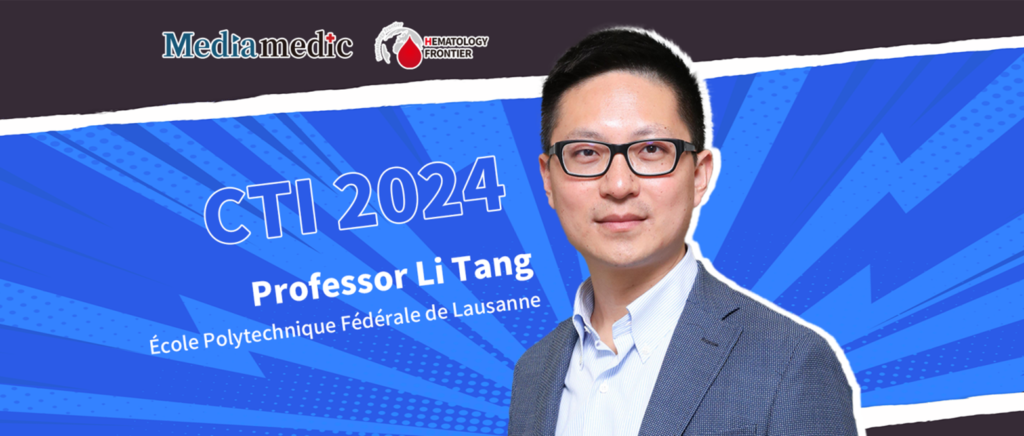
From November 14 to 17, 2024, the Cellular Therapy and Immunotherapy Conference (CTI) took place in Hangzhou, China. This global event brought together leading experts, scholars, and industry pioneers in cellular and immune therapies, serving as both an academic platform and a showcase for the latest research breakthroughs. During the conference, Hematology Frontier launched the special column “Professor, Please Answer,” featuring on-the-spot interviews with prominent professors to capture their insights and visions for the future of the field. In this edition, we share the inspiring perspectives of Professor Li Tang from École Polytechnique Fédérale de Lausanne (EPFL), Switzerland.Hematology Frontier: In the fields of cellular and immune therapy, what research areas are you currently most focused on?
Professor Li Tang: My primary research interests encompass two key areas: Chimeric Antigen Receptor T-cell (CAR-T) therapy and messenger RNA (mRNA) gene therapy. Both of these cutting-edge domains hold immense potential and offer promising avenues for future applications.
Hematology Frontier: What were your key takeaways or reflections from participating in this year’s CTI conference?
Professor Li Tang: One of the most profound takeaways for me was the significant advancements in the CAR-T therapy domain. Initially, CAR-T cells were primarily targeted toward B-cell-derived tumors and certain hematologic malignancies. However, today we are witnessing their expanded applications across a broader range of diseases, including their potential in treating T-cell-related tumors. Moreover, I was particularly impressed by the exploratory use of CAR-T cells in addressing autoimmune diseases, which marks an exciting frontier for the field.
Hematology Frontier: What are your expectations or visions for the future of cellular and immune therapies?
Professor Li Tang: My greatest hope for the future is to see CAR-T therapy successfully applied in the treatment of solid tumors, a challenge that remains a shared aspiration among researchers and clinicians alike. We are making steady progress toward this goal, and I am optimistic that in the coming years, we will witness groundbreaking achievements in this area.
Scientific Exploration
During the 2024 CTI conference, Professor Li Tang delivered a presentation titled “Type 2 Immunity May Hold Key to Long-term Cancer Remission,” highlighting his team’s pioneering work in the field of Type 2 immunity. Over a decade of intensive research, involving deep cytological analyses of CAR-T therapy samples, has unveiled the critical role of Type 2 immunity in sustaining cancer remission for over eight years in acute B-lymphoblastic leukemia (B-ALL) patients who achieved complete remission (CR). By comparing samples from CR patients with those who experienced relapse, the study shed light on the mechanisms underlying durable clinical outcomes.
In preclinical studies, combining Type 2 immune cytokines with Type 1 immunotherapies demonstrated robust antitumor effects across various syngeneic and xenograft solid tumor models. These approaches not only inhibited tumor growth but also effectively activated lasting immune memory responses. Additionally, Professor Tang presented promising preliminary results from clinical trials on IL-10 CAR-T therapy, which validated the immense therapeutic potential of Type 2 immune factors in cancer immunotherapy. These findings offer novel strategies for optimizing immune therapies and are poised to redefine the design paradigms of future cancer immunotherapies.
Looking Ahead
The breakthroughs shared by Professor Li Tang underline the transformative potential of Type 2 immunity and mRNA technologies in advancing cancer treatments. With a commitment to innovation and collaboration, these developments pave the way for a new era of precision medicine, offering hope to patients worldwide. The CTI conference continues to serve as a catalyst for driving progress and fostering global exchange in cellular and immune therapies.


